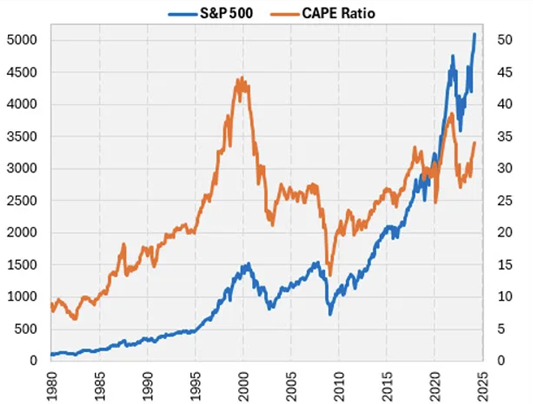The canary in the gold mine
ABC Bullion was based in my building before it moved to Martin Place. Thankfully, they moved, otherwise I would have to use 12 flights of stairs to get into the office each day.
This is a recent phenomenon gaining unbelievable momentum. In the past two weeks demand has skyrocketed with the queues getting longer to buy physical gold each day, which has never occurred in my living memory. Demand for gold often surges when markets dip or became volatile. This is exceptionally unusual.
Never in my 30 years in markets have I witnessed such an abundance of capital with all asset classes being at their peak; gold, equites, property and all other types of alternatives such crypto currencies and exotic investments.
Have canaries taken a liking to gold mines?
It seems there is no end in sight. The next interest rate move is even more uncertain. Unemployment has spiked and at the same time inflation is rearing its head again.
This backdrop supports a further appreciation of asset prices; it also creates a paradox: margins are being squeezed further, leaving both investors and businesses to navigate one of the most unusual environments in recent decades. What are the consequences? And where to from here?
Perhaps this a reminder of the Greek myth of Icarus offers a timeless warning: fly too close to the sun, and the consequences can be severe.
Equities: Low margins, high prices, even higher concentration
Equity markets are scaling new highs. Consumer stocks, in particular, have enjoyed an earnings boost, and management teams across multiple sectors are issuing more optimistic forward guidance. Yet, beneath the surface, the reality is more sobering: only one in five companies actually meets or beats expectations.
For years, the bar for listed companies has been set remarkably low, and the current rally reflects sentiment more than genuine earnings strength. Dividend yields across the ASX 200 have compressed to around 3.2%, leaving little appeal for income-seeking investors, particularly when compared with bond yields and private credit opportunities. Meanwhile, valuation metrics are stretched: price-to-earnings multiples are soaring, and the Shiller CAPE ratio suggests equity markets are among the most expensive they have ever been.
For investors, this represents a dilemma: participate in the rally at the risk of paying inflated valuations, or step back and accept lower relative returns from traditional equities.
The Shiller CAPE ratio very rarely surpasses 30

Source: Yahoo Finance
Concentration risk is now a defining feature of equity markets. In Australia, the top 10 companies account for an extraordinary 56% of the ASX 200, while in the US, the top 10 represent around 36% of the S&P 500. Such dominance means investor returns are increasingly
Property: Supply scarcity meets political pressure
Property markets have staged a remarkable turnaround. For the first time in years, prices across all Australian capital cities are rising in unison. With supply at generational lows and migration at historic highs, most forecasts predict further gains of 5%–15% across major cities in the coming year.
What might appear to be a cyclical upswing is, in reality, a deepening structural imbalance. The private sector overwhelmingly drives Australia’s housing supply, and developers must reconcile the complex realities of project feasibility with the bureaucracy of planning systems. Despite attempts at reform, construction costs remain stubbornly high, and productivity in the building sector continues to decline. The result: projects do not stack up, pipelines shrink, and undersupply worsens.
We’re watching a structural issue quickly become a political fault line. There is pressure to commit to a substantial pipeline of infrastructure in the coming years – but our construction sector lacks the capacity to see these plans through without causing further supply constraints to the residential property market. Calls to pause or cap migration are gaining traction, framed as a means to allow the market to “catch up.”
Yet restricting migration risks curtailing broader economic growth and addressing only the symptoms, not the root causes, of Australia’s housing crisis.
Private markets: A rising tide, yet dangerously misunderstood
While equities and property continue to dominate the headlines, private markets are steadily emerging as the quiet beneficiaries of today’s environment. Margins have compressed, valuations stretched and the correlation between equities and bonds continues to rise. Investors are increasingly drawn to alternatives that can deliver genuine income, exhibit lower volatility, and provide diversification through low correlation to traditional assets.
Yet the appeal of private markets comes with an important caveat: the way risk is assessed here is fundamentally different. Applying an equity-market lens to private credit or private equity can be misleading, even hazardous. The lack of transparency, limited liquidity, and bespoke nature of these instruments mean that regulators are monitoring the sector closely.
Unlike the public equity and bond markets — where real-time pricing, efficient price discovery, and abundant liquidity are taken for granted — private markets operate on the opposite end of the spectrum. They can offer superior risk-adjusted returns with lower volatility, but this opportunity comes at a cost. Investors must accept greater responsibility for conducting thorough due diligence and ensuring that investment decisions are made with a complete understanding of the risks involved.
Fly too close to the sun and the consequences can be severe
In today’s markets, two schools of thought have emerged around risk and resilience.
On one side are those who downplay the prospect of major downturns. They argue that structural changes in capital markets, combined with proactive regulatory oversight, have reduced the likelihood of events akin to the Global Financial Crisis. As an economist at a major Australian financial institution remarked: “Don’t worry about Lehman Brothers moments or Minsky moments. We have a significant amount of capital available; regulators are proactive. Thursday, something happens, by Monday morning, it’s all fixed.”
The other perspective — and the one I subscribe to — aligns more closely with Howard Marks and his recognition of cycles. Market behaviour is not dictated solely by fundamentals but also by “animal spirits”: the collective mood and psychology of investors. When confidence is absolute and the prevailing belief is that markets will never fall, it is precisely the time to be cautious. One of my favourite reminders is that when genuine opportunities become scarce, that in itself is a warning sign.
For the past two years, I have been uneasy about the disconnect between market fundamentals and valuations, compounded by significant geopolitical events that have reshaped the global landscape. As a private credit fund manager, I accept that being conservative may sometimes mean being early — or even wrong — in anticipating a correction. But in this business, prudence is rarely punished; it is the cornerstone of long-term success.
Private credit stands out in this regard. Traditionally floating rate returns tied to the cash rate, plus a fixed margin, ensure that income rises in lockstep with interest rate changes. Unlike equities, where yields are falling, or property, where affordability is eroding, private credit offers stability and predictability — qualities that investors increasingly value in times of uncertainty.
1 topic

